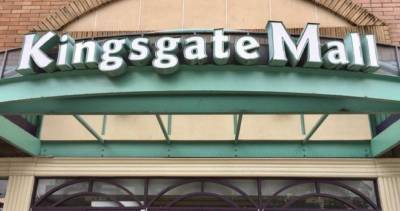U.S. government launches trade complaint against B.C. rule on wine in grocery stores
The Obama administration has filed a complaint with the World Trade Organization to try to overturn one of the Christy Clark's wine reforms.
United States Trade Representative Michael Froman has claimed that B.C.'s decision to allow only B.C. wines on grocery store shelves violates WTO rules.
The Clark government allows foreign wines in grocery stores only if they're put in a separate store on the premises. It must have a separate entrance, a separate cash register, and be at least a kilometre away from a similar store.
Under WTO rules, countries file complaints against other countries, which means that Canada, not the B.C. government, is the respondent.
The U.S. government has a perfect record with its complaints to the WTO, winning all 25 previous complaints. Sixteen of those complaints have been against China and three others were against India.
The complaint against Canada was filed shortly before the swearing-in of a new protectionist president, Donald Trump.
The U.S.-based Wine Institute has previously claimed that B.C. rule allowing only B.C. wine stores on regular grocery shelves puts U.S. producers at a "substantial" competitive disadvantage.
“American winemakers produce some of the highest-quality, most popular wines in the world. When U.S. wine producers have a fair shot at competing on a level playing field, they can compete and win in markets around the globe,” Froman said in a news release. “The discriminatory regulations implemented by British Columbia intentionally undermine free and fair competition, and appear to breach Canada’s commitments as a WTO member. Canada and all Canadian provinces, including B.C., must play by the rules. This administration is continuing to fight to level the playing field for American producers and workers, so that we can continue to grow our economy and support quality jobs across the United States.”
Acting U.S. agriculture secretary Michael Scuse declared in the same news release that local wines in B.C. "get an unfair advantage because they can be sold on grocery store shelves".
"The United States simply seeks equal opportunities to market our wines, consistent with Canada's international obligations," Scuse added.
Attorney General Suzanne Anton and the B.C. Wine Institute each claimed in the past that the provincial liquor reforms do not discriminate against foreign producers.
Last year, Canadian-based diplomats for seven foreign governments, including the United States, wrote a letter to Premier Clark explaining why they felt the store-within-a-store concept violated WTO rules. In the letter, they cited Rule III:4 of the General Agreement on Tariffs and Trade.
The other signatories were diplomats representing the European Union, Australia, New Zealand, Mexico, Argentina, and Chile, raising the possibility that these governments may also file trade complaints against the B.C. rule.
The premier is the B.C. Liberal MLA for Westside-Kelowna, which is home to several B.C. wineries.
The trade complaint over wine comes as the U.S. is proceeding with the next step in an escalating dispute over forest products.
The B.C. Liberal government objects to a recent U.S. International Trade Commission ruling, which determined there's a "reasonable indication" that Canadian softwood lumber is subsidized















Comments